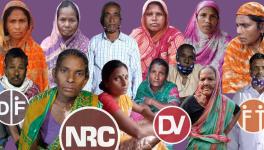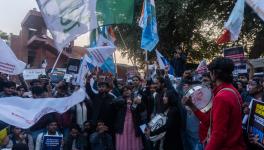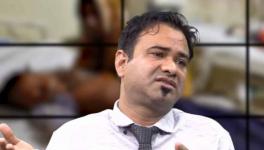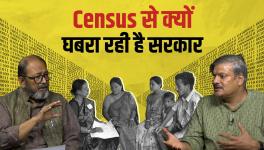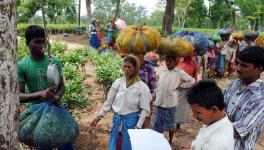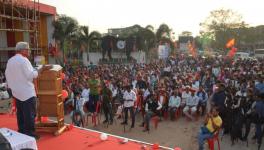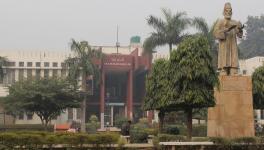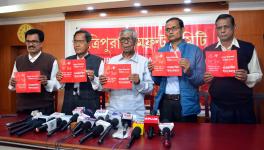Other States Too Are Demanding an NRC
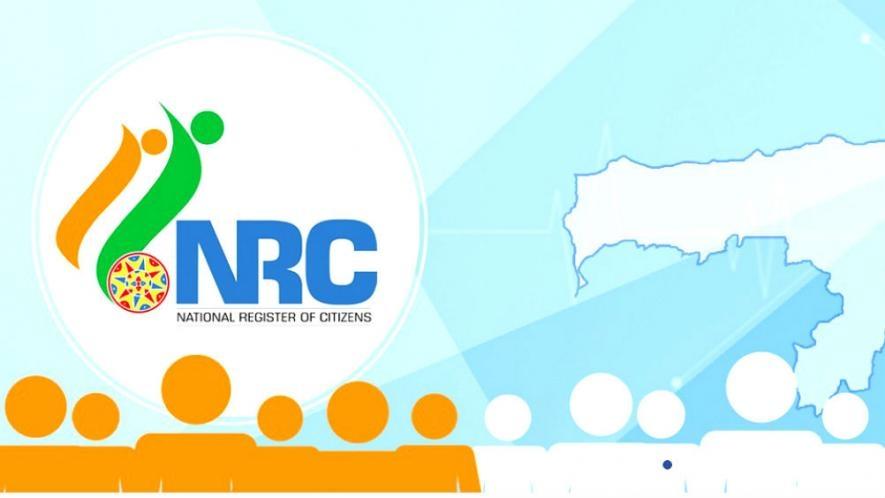
Following the publication of the final draft of the National Register of Citizens (NRC) in Assam, demands for a similar exercise have been cropping up in other states. The state unit of the Bharatiya Janata Party (BJP) has demanded undertaking an NRC exercise in West Bengal. A partner in the ruling alliance in Tripura, the Indigenous People's Front of Tripura (IPFT) has also raised the demand. Chiming in, the state unit of the Janata Dal United (JDU) has raised the demand in Nagaland. In the meantime, civil society groups in Meghalaya and Mizoram have also voiced these demands. However, if the Union Government were to agree to these demands, it could become a larger headache than the process in Assam is turning out to be.
Read More: Assam: The Mythology of “Immigrants”
In West Bengal, Dilip Ghosh, the BJP party president for West Bengal has promised to implement the NRC if voted to power. In the face of the Mamata Banerjee-led Trinamool Congress's (TMC) vociferous opposition to the NRC, this may make the BJP particularly unpopular. This is due to two factors. Firstly, the BJP managed to get SS Ahluwalia elected from Darjeeling due to support from the Gorkha Janmukti Morcha (GJM). The GJM has been demanding a separate state of Gorkhaland for the Nepali-speaking population of the Darjeeling hills. The Gorkhaland demand only became a mass movement in 1986.
Read More: Shahid Diwas: The Hills Remember
The initial basis for the movement was that the Nepali-speaking population wanted to be considered full citizens of India. At the time, the Nepali language was not even included in Schedule VIII of the Constitution. The Gorkha National Liberation Front (GNLF) had agitated against the Indo-Nepal Treaty stating that it made the Nepali speaking Indians' citizenship status ambiguous. Late Madan Tamang of the All India Gorkha League had often questioned the bona fides of the 1951 census as it had been conducted in the Darjeeling Hills. Due to the Assam Accord, March 24, 1971 was the cut-off year for determining citizenship for the rest of the country, the date stands as per the 1951 census. If the bona fides of the 1951 census have been questioned, one can only imagine what it could mean for the Hills if the NRC is brought in.
On the other hand, like many parts of Assam – the Barak Valley region in particular – West Bengal has close familial ties with Bangladesh. These ties are not limited to only the border regions, but all over the state. Following partition and later the Bangla Bhasha Andolan including the Liberation War in erstwhile East Pakistan, there was a large inflow of refugees. Perhaps, not all of them went back to the newly formed Bangladesh. These people would also get caught in the exercise if 1951 is applied as the cut-off year. Therefore, it appears that as far as immigration from Bangladesh is concerned, it would not be possible to consider 1951 the cut-off year, which could make 1971 the optimal year for consideration.
Tripura poses a different picture. It is true that immigration prior to the arrival of the British had already begun to transform the ethnic demography of the former kingdom. Both Mevar Kumar Jamatia as well as Ananta Debbarma of the IPFT have raised the demand. Ananta Debbarma, the vice president of the party, has stated that the IPFT would organise a rally at the headquarters of the Tripura Tribal Autonomous District Council in Khumulwng on August 23. Interestingly, the BJP Chief Minister of Tripura, Biplab Kumar Deb, has stated that there was no need for such an exercise to be undertaken in Tripura. Perhaps the good chief minister is worried about the fact that his birth is recorded as November 25, 1971 in Radha Nagar, Gomati District, Tripura, and that both his parents are from Kachua Upazila in Chandpur, Bangladesh. According to the reports, his parents fled to Tripura during the Bangladesh Liberation War, which officially began on March 25, 1971. By this logic, if March 24, 1971 is considered the cut-off year for Tripura, Deb may have to be deported.
The state unit of the JDU in Nagaland has stated that they would raise the demand in the next meeting of the People's Democratic Alliance (PDA) meeting. The PDA consists of the Neiphiu Rio led National Democratic Progressive Party (NDPP), the JDU, the BJP, the National People's Party (NPP), and an independent candidate. The JDU has stated that they would push for December 1, 1963 as the cut-off year for the process, as this was when the state of Nagaland was formed. However, in the case of Nagaland, 1963 was also the year in which Nagaland was heavily militarised. It may not be possible to determine with certainty that all those on the electoral rolls then were all the adults in the new state. How many could have been in the camps across the border in Myanmar at the time cannot be ascertained either, as both men and women participated in the struggle.
In Mizoram, the Mizo Zirlai Pawl (MZP) has pitched the demand for implementing the NRC. They have cited Chakma immigrants as the problem for Mizoram. When it comes to Chakmas, a difficult situation arises. Firstly, Chakmas may already have been living in the area prior to partition. Secondly, the British – like for Nepali speakers and Bengalis – oversaw Chakma migration to present day Mizoram. The next issue is that the Chakma people had launched an armed movement against the Government of Bangladesh for the injustices committed against them in their homeland – the Chittagong Hill Tracts (CHT).
Read More: One More Step Towards Closing the Chapter of Insurgency in Mizoram
The Shanti Bahini – the largely Chakma-led political armed group fighting in the CHT – finally signed a peace accord with the Government of Bangladesh on December 2, 1997. In this case, it would not be proper to choose a date earlier than the date on which the accord was signed. However, an additional issue arises, following the Mizo Accord, the Mizo National Front (MNF) guerrillas handed over their arms, however, the Hmar people were aggrieved that all their lands were neither included in the new state of Mizoram nor did they receive autonomy within the state. They launched their own armed struggle which only officially ended on April, 2 this year. Another minority group in Mizoram who had launched their own armed movement – for an autonomous council – is the Bru people. Mizoram witnessed ethnic riots against Brus in 1997. Till date, repatriating the Bru people to Mizoram has remained problematic.
Read More: Bru Refugees: Another Repatriation Failure?
Meghalaya has never witnessed armed movements on the scale of Assam, Manipur, Mizoram or Nagaland. There have been low level armed movements first comprising of all the 'indigenous' communities living in the state. These later split up along ethnically communal lines. However, the demand here has come from the Khasi Students Union (KSU). The KSU has submitted a petition to deputy Chief Minister, Prestone Tynsong, which is to be transmitted to the Chief Minister, Conrad Sangma. The KSU has demanded that 1971 be made the cut-off year for determining citizenship along the lines of the process in Assam.
Read More: Is Ethnic Tension Behind the Shillong Violence?
On the one hand, it is true that Meghalaya had sheltered the Mukti Bahini guerrillas. The guerrillas had also received training in Meghalaya during the war. However, the target for the KSU is not limited to 'Bangladeshis' but also includes 'Nepalis' and 'people from mainland India'. An interesting aspect of this is that there has, in fact, been a large migration of Nepali speaking people to Meghalaya to work in the coal mines. However, these migrants actually come from the more neglected parts of the Darjeeling Hills, such as Gorubathan.
Unless lessons are learnt from the shortcomings of the current NRC process in Assam, attempting to implement it in other states may turn out to be more counterproductive. Migrants from other states in India have not found their names on the final draft of the NRC in Assam. The reasons stated by the officials is that the verification requests have not be returned by the state governments to whom they have been submitted. The main defaulters were West Bengal, Tripura and Jharkhand. In this light, attempting to impose the NRC in other states may result in boundaries being redrawn.
Get the latest reports & analysis with people's perspective on Protests, movements & deep analytical videos, discussions of the current affairs in your Telegram app. Subscribe to NewsClick's Telegram channel & get Real-Time updates on stories, as they get published on our website.









